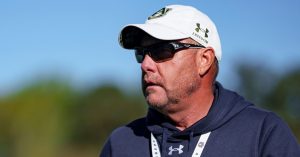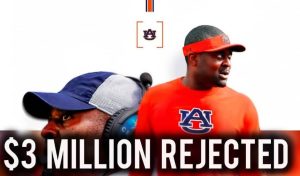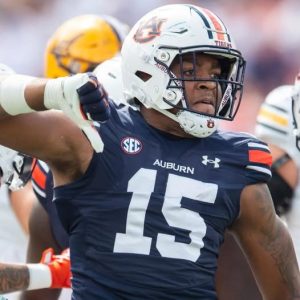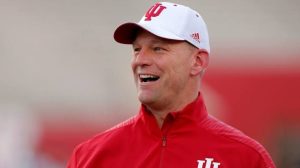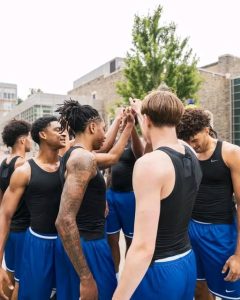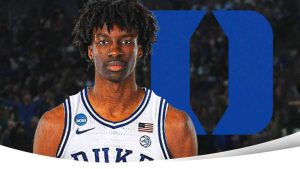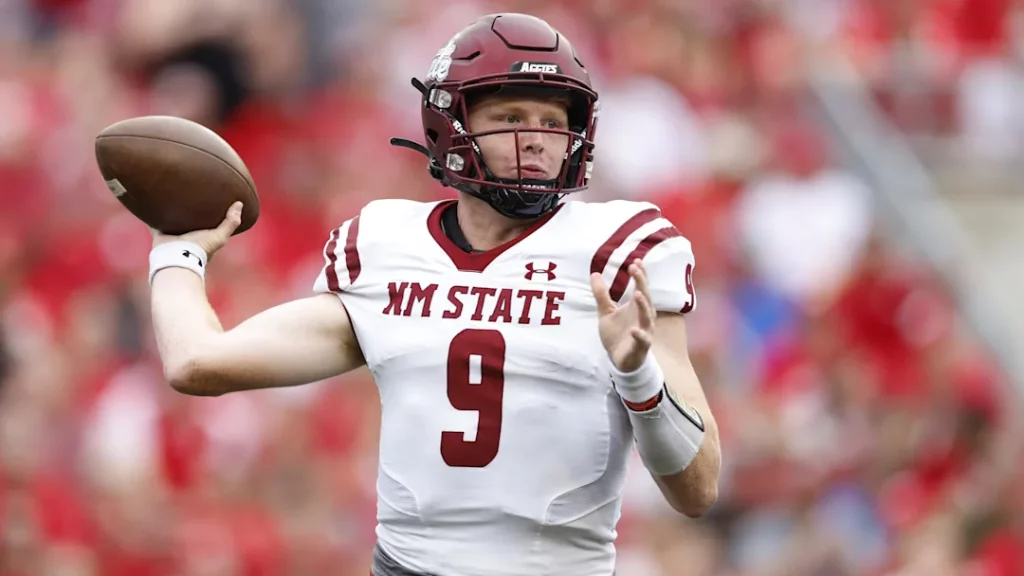
The Oklahoma Sooners have once again made a splash in the NCAA Transfer Portal, securing a commitment from yet another quarterback, a move that continues to shape the identity of Brent Venables’ evolving program. As the Sooners look to reassert themselves as a dominant force in the Big 12 and beyond, the addition of this latest signal-caller signals both a desire to deepen the quarterback room and intensify the competition heading into the upcoming season.
Sources confirmed to multiple outlets late Thursday that former Michigan State quarterback Katin Houser has committed to Oklahoma, marking the program’s second quarterback portal addition this offseason. This follows an earlier move that brought in former Texas Tech backup Jake Strong, creating a fascinating dynamic in Norman as the team braces for its first season in the Southeastern Conference. With Dillon Gabriel having transferred to Oregon and Jackson Arnold poised to take over the starting job, Oklahoma’s quarterback room has quickly become one of the most talked-about in the country.
Houser’s arrival brings experience, pedigree, and a chip on his shoulder. A former four-star prospect out of California, Houser was once heralded as one of the rising stars in college football. He was expected to carry the torch in East Lansing after Payton Thorne’s departure to Auburn but struggled to solidify himself as the clear starter under former Michigan State head coach Mel Tucker. The turmoil surrounding the Spartans’ coaching staff and a lack of continuity on offense ultimately stunted his development, but the talent and potential remain obvious. His dual-threat capability, strong arm, and quick decision-making make him an intriguing addition for Oklahoma, particularly in Jeff Lebby’s quarterback-friendly system—despite Lebby now being the head coach at Mississippi State, his fingerprints on OU’s offensive DNA still linger.
The Sooners are clearly building a contingency plan. While Jackson Arnold is expected to be the unquestioned QB1 entering fall camp, the redshirt freshman still has plenty to prove. His arm talent and command of the offense showed flashes of brilliance in limited action last season, but the transition to being the full-time starter—especially against SEC defenses—is an entirely different challenge. With Houser and Strong now in the fold, Oklahoma has given itself valuable options and a safety net should Arnold struggle or suffer an injury. In today’s college football landscape, where depth is as crucial as star power, this is a savvy move.
What stands out about Oklahoma’s approach is how aggressively Venables and his staff have embraced the portal to address needs and stockpile talent. Unlike some programs that view the portal as a supplemental tool, Oklahoma is using it as a foundational piece of its roster-building strategy. This is especially important at quarterback, the most critical position on the field. In recent years, the Sooners have experienced both the highs and lows that come with depending on a single elite quarterback. From Baker Mayfield and Kyler Murray to Jalen Hurts and Caleb Williams, the program became known for its Heisman-level quarterback play. But the past couple of seasons have brought more inconsistency and uncertainty. That’s why moves like this are so essential—they create insurance, raise the level of internal competition, and keep the floor of the position room high.
For Houser, Oklahoma represents a fresh start and a golden opportunity. With a new environment, coaching, and support system, he’ll have every chance to resurrect his trajectory and compete at the highest level. He may not be the favorite to win the job right away, but history has shown that quarterbacks rarely finish the season the same way they start it. Injuries, performance dips, and situational adjustments often create opportunities. If nothing else, Houser will push Arnold and raise the overall standard of the room. The importance of that can’t be overstated.
The move also sends a message to the rest of the SEC: Oklahoma isn’t just joining the league—they’re preparing to contend. The SEC’s quarterback play is notoriously elite, and if the Sooners hope to keep up with the likes of Georgia, Alabama, and LSU, they’ll need more than just talent. They’ll need depth, experience, and resilience. Houser brings all three, along with a hunger to prove himself. That could be the perfect recipe in a league where quarterbacks are often asked to do more than just manage games.
This transfer commitment also speaks to the broader appeal of Oklahoma as a destination for quarterbacks. Even after the departure of Lincoln Riley, the program’s legacy of developing quarterbacks remains strong. Players recognize the platform, the facilities, the fanbase, and the opportunity to compete on the biggest stage. For someone like Houser, who was once expected to be the future of a Big Ten program, this is a second chance at national relevance.
The recruiting implications are also worth noting. With Houser in the mix, Oklahoma can afford to be patient with its younger signal-callers. The presence of multiple experienced quarterbacks on the roster buys time for the development of incoming freshmen and avoids the pressure to rush their progression. It also demonstrates to future recruits that Oklahoma is committed to building a competitive, high-caliber quarterback room that reflects the demands of modern college football. In a sport where quarterback depth can make or break a season, the Sooners are stacking the deck in their favor.
While fans may initially view this move through the lens of “backup insurance,” the bigger picture is far more significant. Houser’s presence elevates the intensity of practice reps, fosters accountability, and forces everyone to bring their best every single day. That kind of internal pressure can only benefit the Sooners as they transition into a more physical, demanding schedule in the SEC. Competition has always been the engine of championship teams, and Oklahoma is clearly leaning into that philosophy.
Additionally, Houser’s maturity and poise could prove to be invaluable in the locker room. Having navigated adversity, coaching changes, and high expectations at Michigan State, he understands the mental toll that college football can take. He brings not just skill, but perspective—something that can’t be taught but is often needed in pressure moments. Whether he’s under center or supporting from the sidelines, his voice and experience could be pivotal in guiding a relatively young offensive unit.
From a schematic standpoint, Houser fits the mold of what Oklahoma wants at the position. He’s mobile enough to extend plays but has the arm strength and vision to attack downfield. In a conference where defenses are becoming faster and more complex, having a quarterback who can process quickly and make throws on the run is a major asset. He’ll need time to adjust to the new system, but his skill set aligns with what Oklahoma has historically done well.
This move won’t grab national headlines the way some five-star commitments or splashy transfers might, but it could end up being one of the most important decisions of the offseason for Oklahoma. Championship teams are often built on the backs of depth players who rise when needed. Houser may not be a household name yet, but he now has the platform to change that—and Oklahoma has the infrastructure to help him do it.
In the end, this is a win-win for both sides. Oklahoma adds a proven, battle-tested quarterback with years of eligibility remaining, and Houser gets a fresh start in one of the premier programs in the nation. Whether he starts, serves as a mentor, or ultimately transfers again down the line, his time in Norman will carry weight. And in a sport that continues to evolve with rapid change and constant movement, the value of having options cannot be underestimated.
The quarterback room in Norman just got deeper, more experienced, and more competitive. That’s not just good news for Brent Venables—it’s good news for Oklahoma’s championship aspirations. As the Sooners march into a new era of SEC football, they’re doing it with eyes wide open and a clear plan in place. Adding Katin Houser is another step toward building the kind of roster that can not only survive in the SEC but thrive. And if he’s called upon, don’t be surprised if Houser delivers in a big way.
